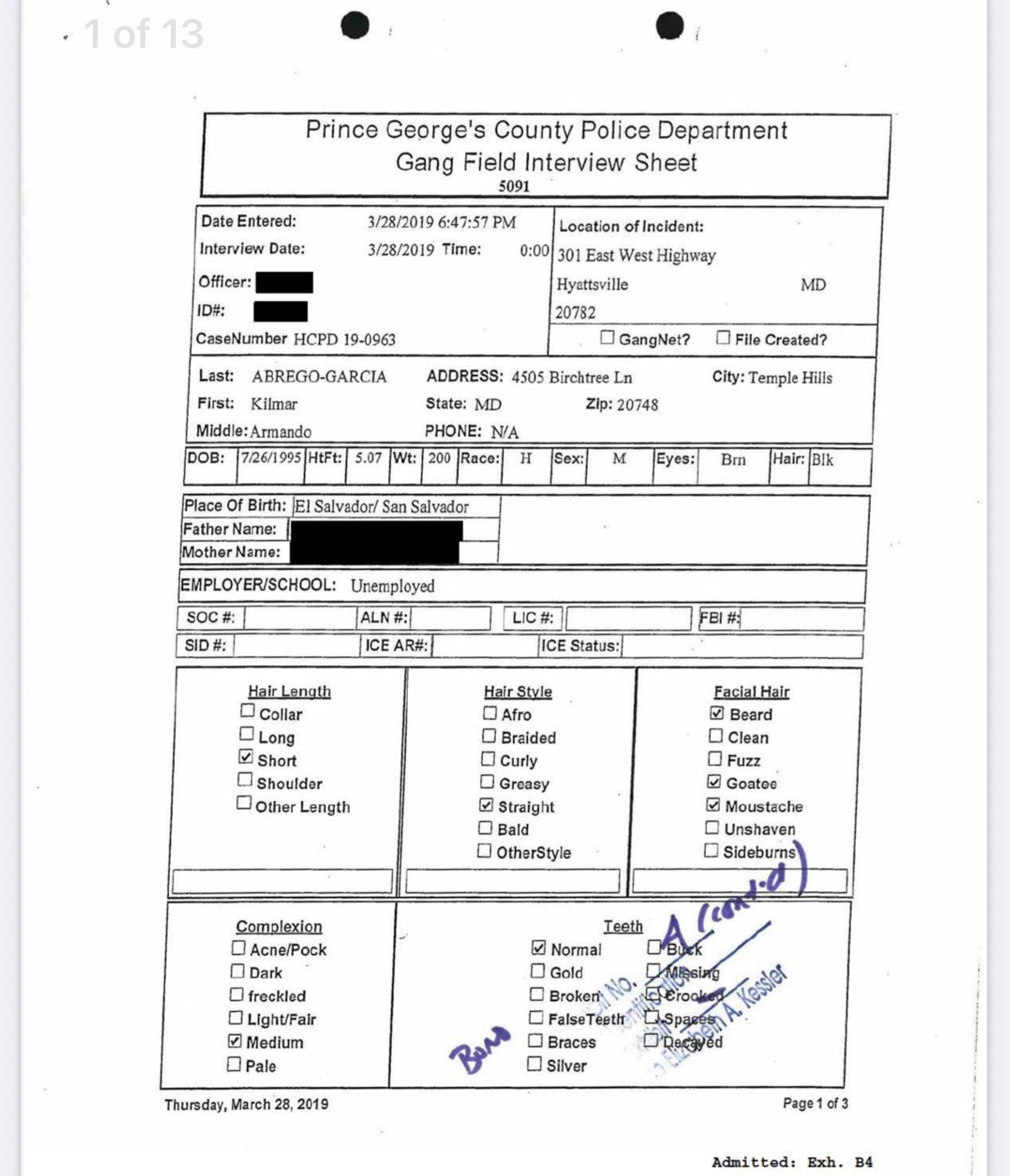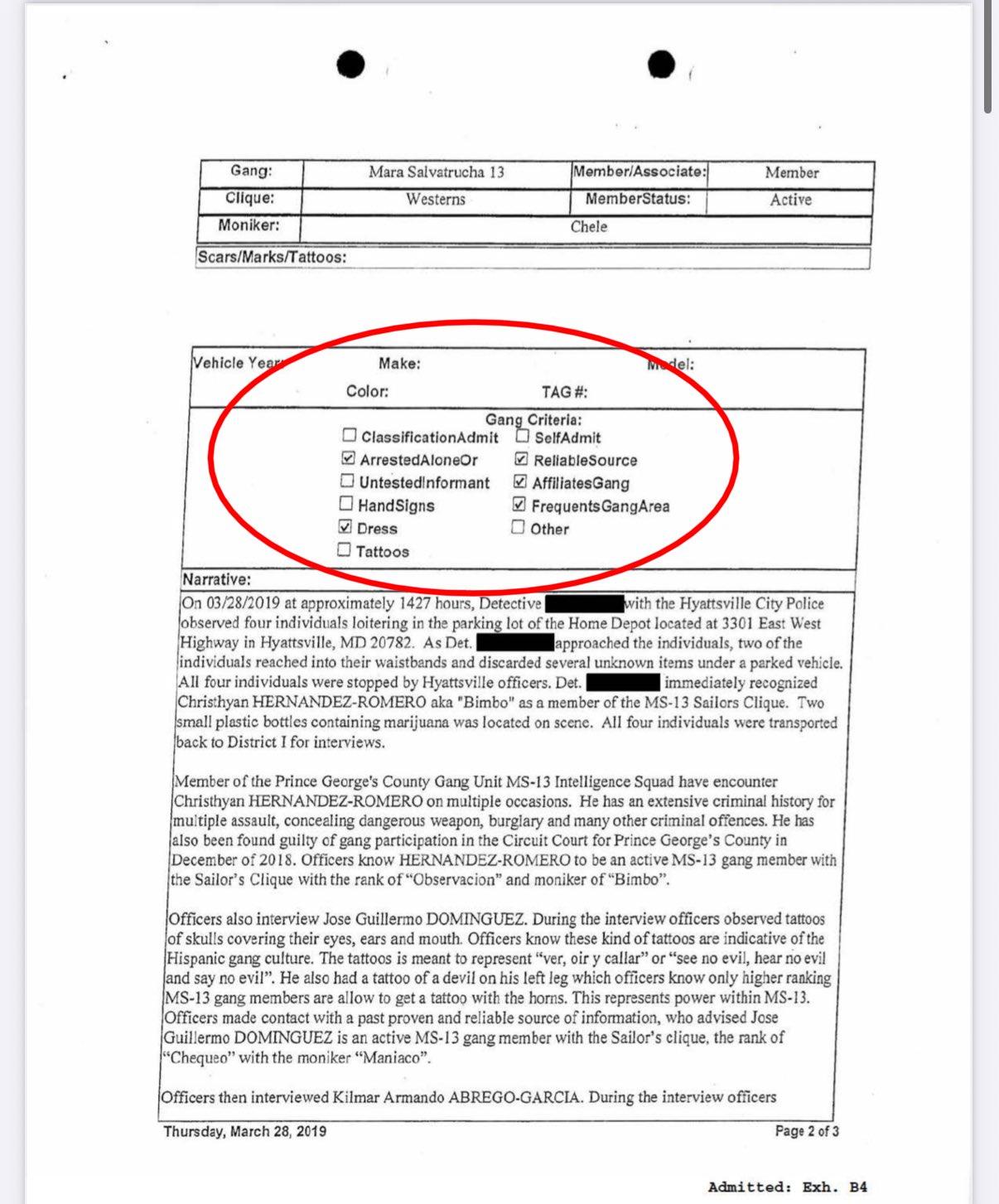On Wednesday afternoon The Department of Justice released previously sealed documents today confirming that Kilmar Abrego Garcia, a Salvadoran national at the center of a controversial deportation case, was in fact classified by law enforcement as a gang-affiliated individual with ties to MS-13.
The revelation delivers a blow to critics of the Trump administration, who had accused federal officials of unlawfully deporting an innocent man. The documents, made public by Attorney General Pamela Bondi, include internal DHS reports, immigration court records, and law enforcement gang validation sheets—all pointing to Abrego Garcia’s affiliation with the violent transnational gang.
One report, based on the Prince George’s County Police Department’s Gang Field Interview Sheet, explicitly identifies Abrego Garcia by name, stating he was “validated as a member of the Mara Salvatrucha MS-13,” and held the rank of “Chequeo” within the gang’s Westerns clique.
The information was corroborated by a “past, proven, and reliable source,” according to the documents. Bondi shared the files Wednesday afternoon, writing: “We are releasing additional information on Kilmar Abrego Garcia,” alongside a link to the official DOJ site.

The gang validation was a key point of contention in earlier legal challenges. Immigration judges had cited Form I-213 records—official DHS documents prepared during apprehension—as “inherently trustworthy and admissible,” despite objections from Abrego Garcia’s attorneys.
Those forms detail his arrest during a law enforcement operation in Hyattsville, Maryland, and state he was approached while loitering near a Home Depot alongside other validated MS-13 members.
In a detailed bond memorandum from 2019, an immigration judge concluded that Abrego Garcia presented a flight risk and danger to the community, citing his repeated failure to appear in court over traffic violations and his lack of credible asylum eligibility.
The judge also cited limited ties to the community and the speculative nature of his relationship with his then-fiancé, despite her pregnancy at the time. Opponents of the deportation had painted Abrego Garcia as a victim—an undocumented father with no criminal convictions, living in Maryland with a U.S. citizen wife and children with special needs.

But Wednesday’s disclosures cast doubt on that narrative, indicating that immigration authorities had substantial cause to proceed with removal based on national security and public safety considerations.
The new evidence comes just weeks after the U.S. Supreme Court ruled the deportation of Abrego Garcia unlawful due to procedural issues surrounding his withholding of removal status.
While the ruling ordered the government to “facilitate” his return, it did not compel federal officials to extract him from El Salvador, where he is now imprisoned in the country’s high-security Terrorism Confinement Center.
The Trump administration, for its part, has defended the deportation as both lawful and justified. Still, the documented gang validation, corroborated by multiple sources and cited in formal immigration court rulings, is likely to complicate efforts to portray Abrego Garcia as a blameless victim of federal overreach.
Whether Abrego Garcia will ever be allowed back into the U.S. remains to be seen.






